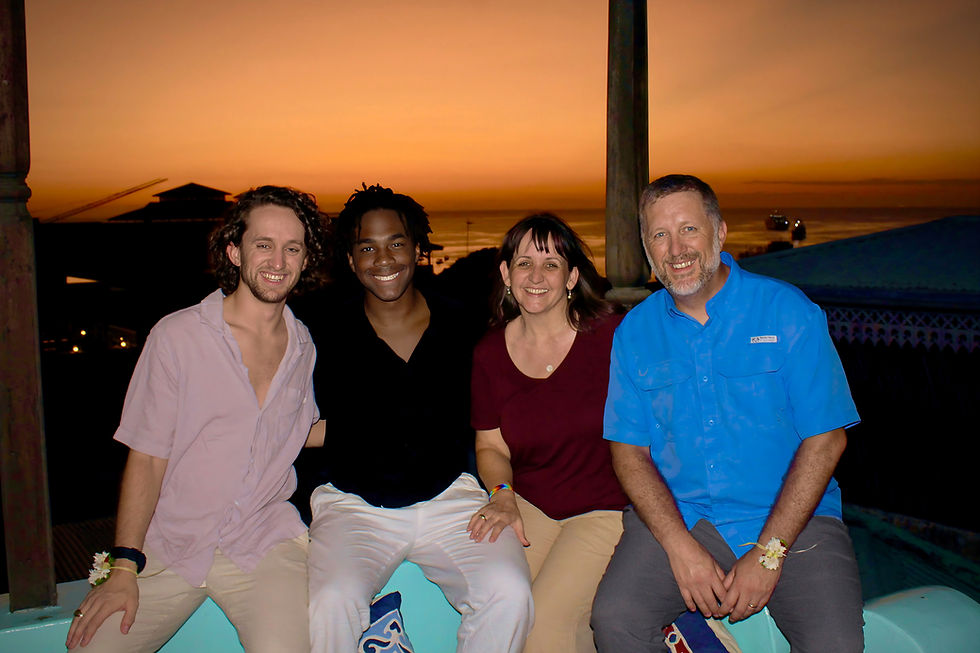“A Story-Shaped Life”
- Sally Gary

- Feb 25, 2013
- 3 min read
Thoughts from Part One of Wesley Hill’s Washed & Waiting: Reflections on Christian Faithfulness and Homosexuality
Like all of us who have wrestled with how to resolve questions about homosexuality and Christian faith, Wesley Hill’s story is one of struggle and confusion growing up feeling different in regard to his sexuality. Above all, though, Hill’s message is a call for compassionate understanding and a need for community within the church for men and women who experience same-sex attraction.
So much of Wesley’s story resonates with me – realizing there was something different very early on, growing up in a Christian home, not feeling safe to share what he was feeling with anyone – even those closest to him.
Believing he had to resolve those unanswered questions about his developing sexuality all by himself.
Hill’s journey led him to believe that as a gay Christian, scripture calls him to a life of celibacy. Whether you agree with Hill’s ultimate perspective or not, I hope you won’t let that diminish the value of this book, for Hill’s message has great worth to us all. It’s my prayer that in looking at different views we will do so with respect for each other’s experience and beliefs, no matter how different they may be from our own. For our beliefs often arise out of places that only someone who has walked the same exact path could fully appreciate.
Hill’s decision to live a celibate life revolves around four core beliefs. First, our lives are grounded in the context of a larger story, namely “…what God has done in Jesus Christ – and the whole perspective on life and the world that flows from that story, as expressed definitively in Scripture” (61). Second, all Christians face challenges of one kind or another and feel frustration as we experience God’s transformative work in us. Third, we don’t live unto ourselves, but rather, our bodies belong to God and to the larger Christian community. Finally Hill sees his abstinence as participation in Christ’s suffering, yet he doesn’t elevate his unfulfilled sexual desire over the struggles of others.
Whether you agree with Hill’s decision or not, the greater message that rings true for all of us here is the truth that we were created to be part of something bigger than ourselves. A bigger story that began when God breathed this universe into existence and extends far beyond us. A bigger story that also involves the present.
Reminding us that we weren’t meant to live isolated lives.
That we live best in community.
That everything we do or say or think or feel has an impact on those around us.
That each one of us has a “cross to bear.”
That there’s respect for each other’s “crosses” whether we understand them or not. Whether you see it as a “cross” or not. Even when you think the person’s “cross” is worse than yours. Even if you think it’s just a result of their ignorance. Or a result of rebellion.
And that we have a responsibility to help each other bear that burden, no matter what.
The ability to be honest and vulnerable within community is powerful. Hill reminds us of the importance of safe places to share our hearts, to have “Christian friends – including friends [our] age, peers – who would be there for [us], who would help [us] figure out how to live with a tension and confusion that [sometimes] seem[s] overwhelming” (47).
No matter what our struggles are, even – and sometimes especially – in the church, we long “to feel the freedom of openness and the consolations of community” (45).
It’s made all the difference in the world to have that kind of community among believers in my life.
So what does community look like for you?
How can we provide a better sense of community for each other, especially in churches?
Next week we’ll explore the second part of Washed and Waiting, looking at the life of Henri Nouwen and the pain of loneliness. Would love to hear your thoughts!




Comments